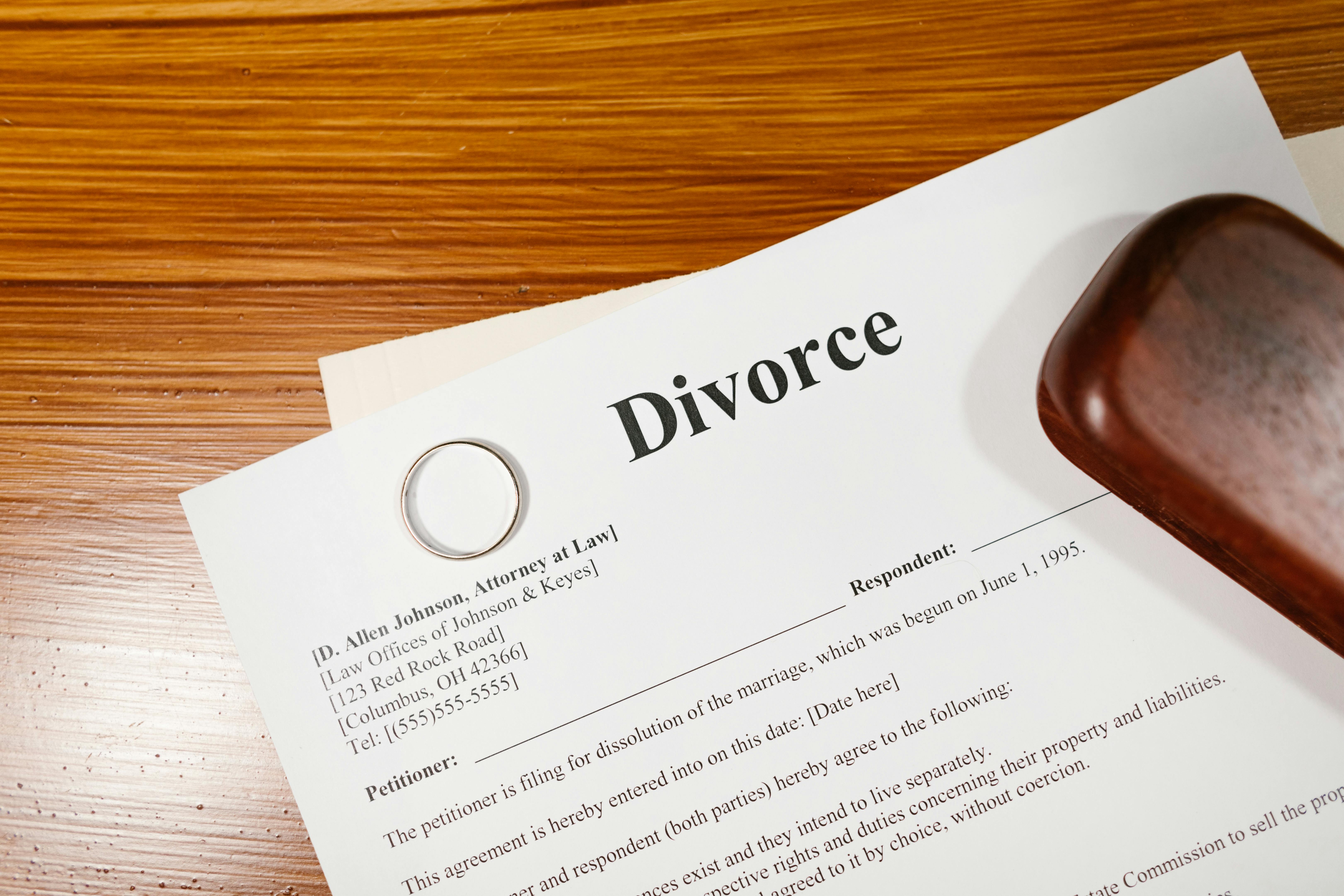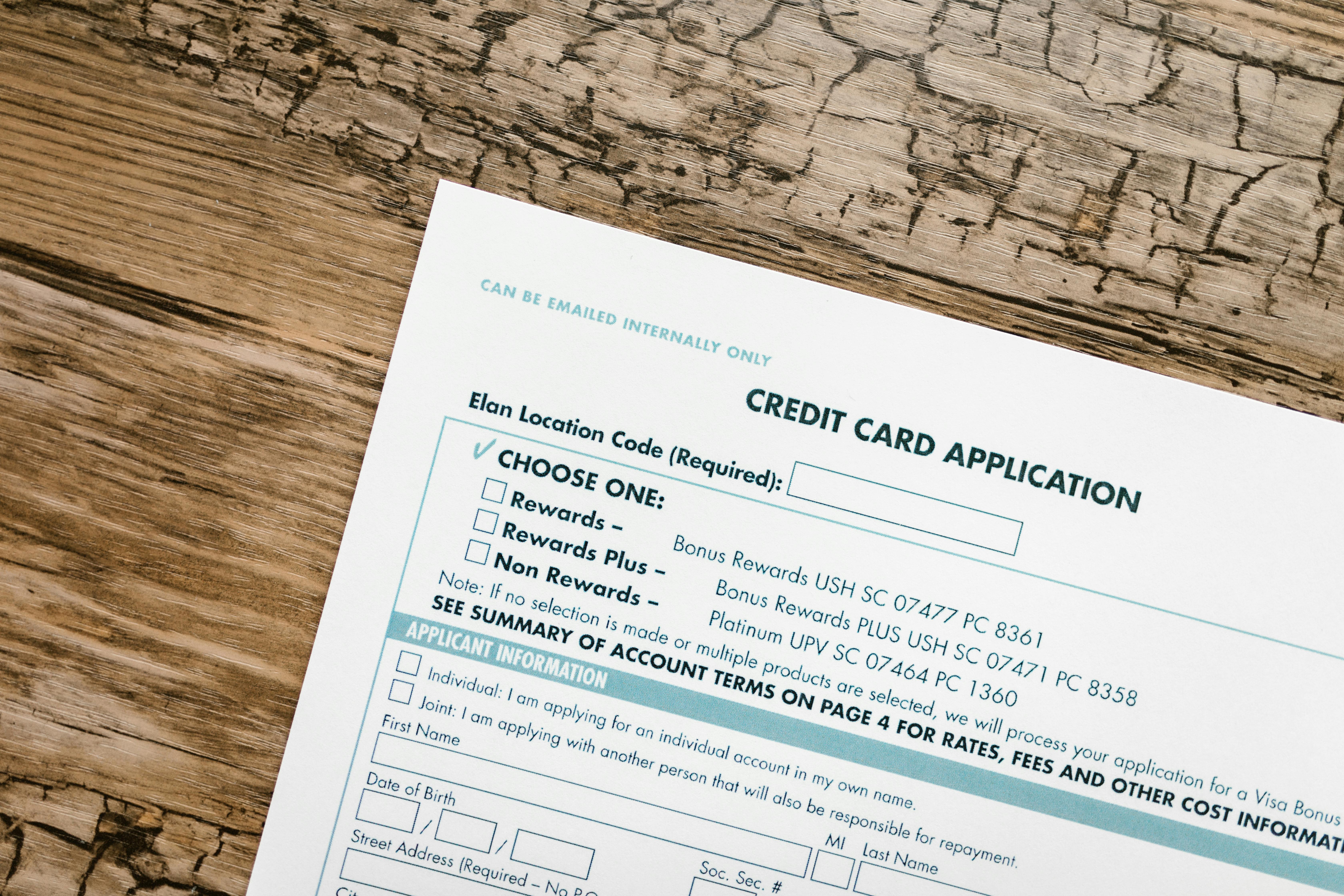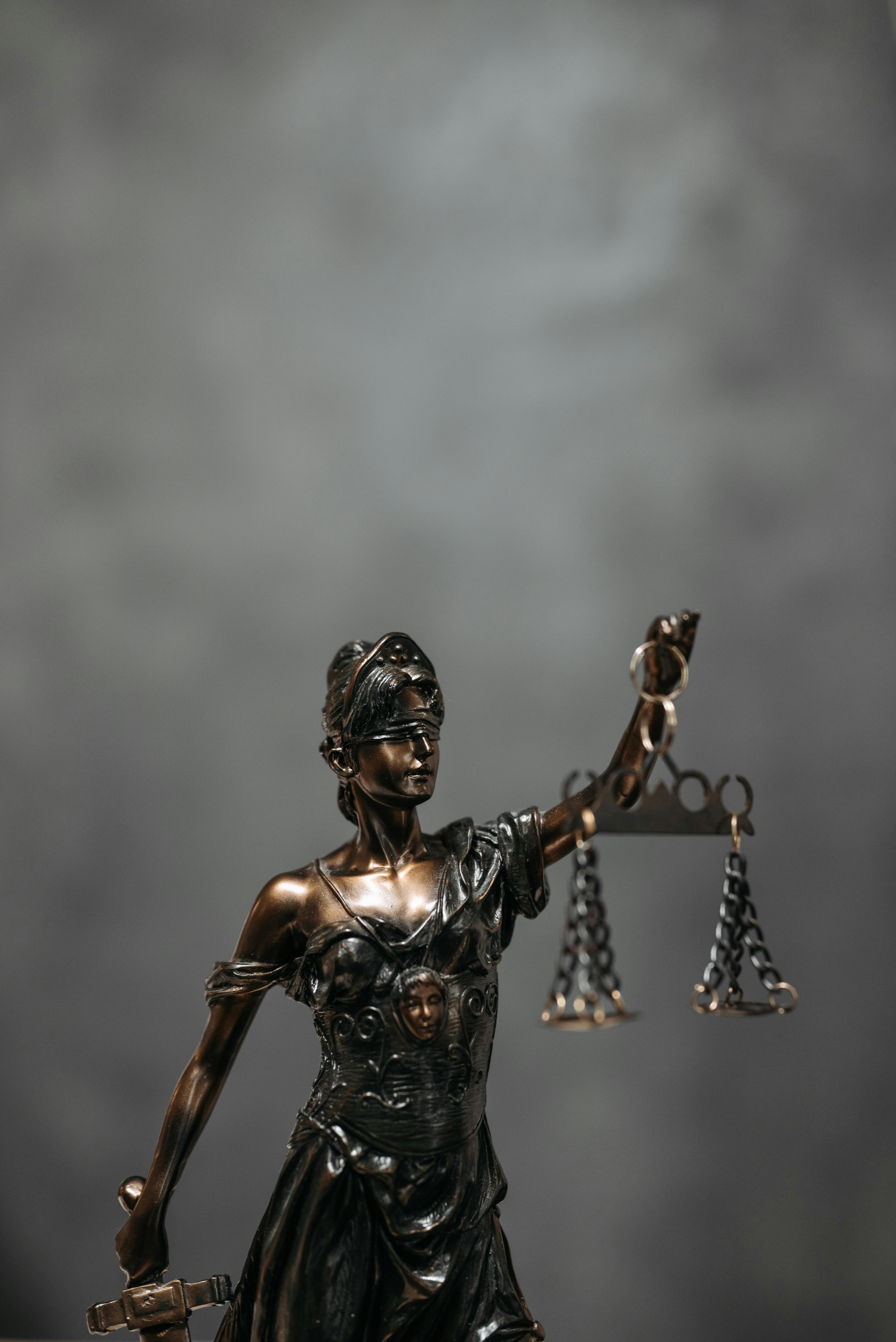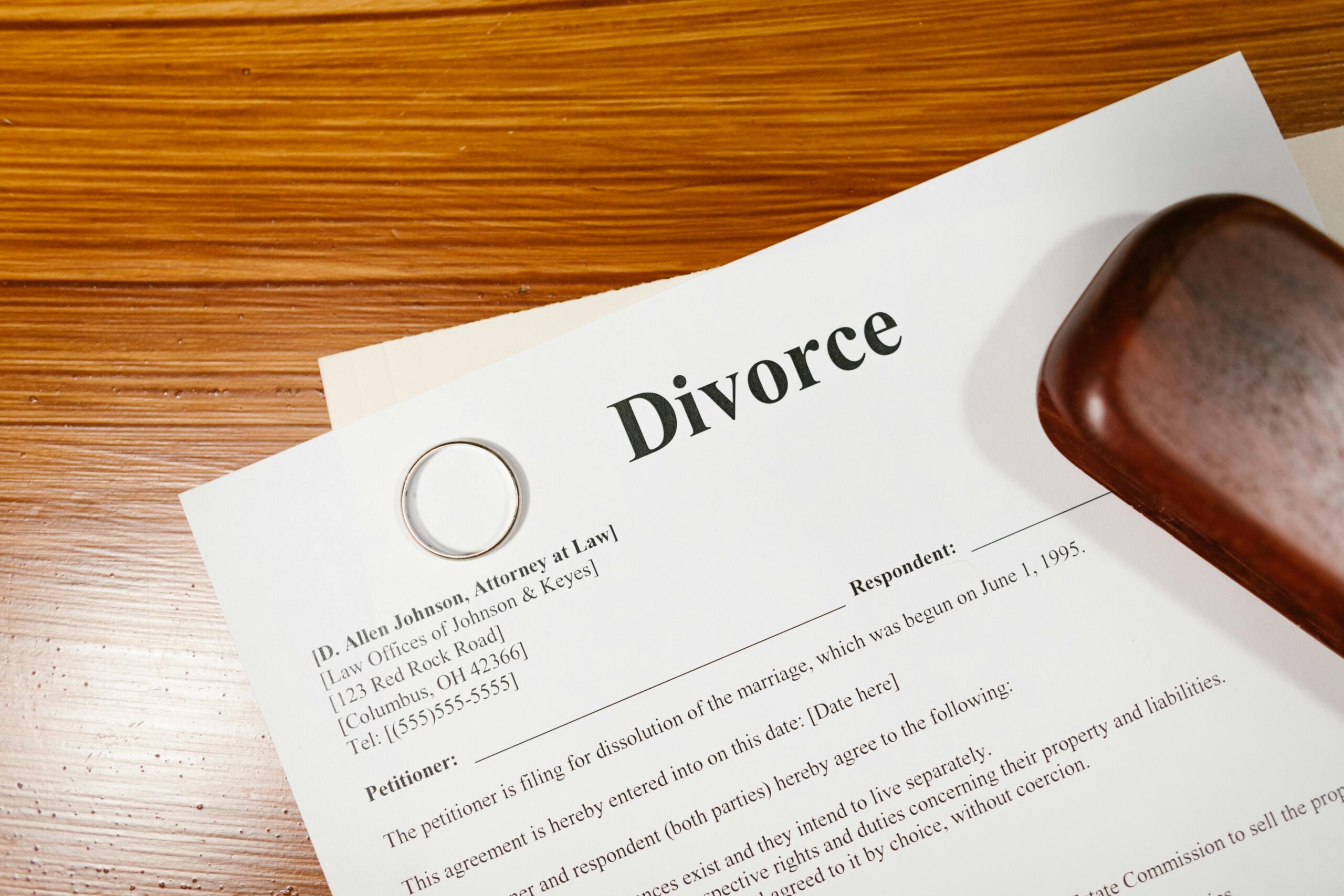Is Hiring a Lawyer Essential for Filing a Lawsuit? Unveiled Truths!

Are you pondering over the decision of whether **hiring a lawyer** is necessary for filing a lawsuit? The process of taking legal action can seem daunting, and the question, “**Do I need a lawyer to file a lawsuit?**” is one many find themselves asking. In today’s legal landscape, understanding the intricate details and the potential pitfalls of the judicial system is more crucial than ever. Whether it’s a small claim or a complex legal battle, the expertise of a seasoned attorney can be the linchpin for success. This blog post delves deep into the **unveiled truths** about the necessity of legal representation in court. We’ll explore the risks and rewards of going solo versus enlisting professional help, backed by recent studies and expert opinions. Stay tuned as we unravel the myths and provide you with all the information you need to make an informed decision about **hiring a lawyer** for your lawsuit.
**Why Consider Hiring a Lawyer? Exploring the Benefits for Your Lawsuit**

**Why Consider Hiring a Lawyer? Exploring the Benefits for Your Lawsuit**
When faced with legal challenges, the decision to hire a lawyer is a critical one. Whether it’s a civil case, a business dispute, or a personal injury claim, understanding the benefits of having professional legal representation can significantly influence the outcome of your lawsuit.
The Expertise and Knowledge of Legal Procedures
Lawyers are trained professionals who have spent years studying and practicing law. They possess a deep understanding of legal procedures and the workings of the court system, which is invaluable in navigating the often complex landscape of filing a lawsuit. For someone without a legal background, understanding the nuances of case law, statutory laws, and procedural rules can be daunting. Hiring a lawyer ensures that all filings are correct, deadlines are met, and the right procedures are followed.
Strategic Advice and Advocacy
One of the primary advantages of hiring a lawyer is their ability to offer strategic advice. Lawyers analyze the facts of your case from a legal perspective, consider all available options, and recommend the best course of action. This might include negotiation and settlement rather than pursuing a trial, which can save both time and money. Moreover, if the case goes to trial, a lawyer will advocate on your behalf, using their skills to persuade the judge and jury, which is something that can rarely be matched by self-representation.
Mitigating Risks and Enhancing Outcomes
The stakes in any lawsuit can be high, with risks including not only financial loss but also personal and professional repercussions. Lawyers help mitigate these risks by ensuring that your legal rights are protected throughout the process. They prepare and review all legal documents, identify and address potential legal issues before they become problematic, and work to secure the best possible outcome. Their expertise can be crucial in avoiding or minimizing penalties in criminal cases or maximizing compensation in civil cases.
Emotional Support and Objectivity
Dealing with legal disputes can be emotionally draining and stressful. Having a lawyer can reduce this stress as they take on the burden of managing the legal process. Furthermore, lawyers provide an objective perspective, making it easier for clients to make informed decisions without the interference of emotional involvement. This objectivity is crucial in legal proceedings where personal feelings might cloud judgment.
Is Hiring a Lawyer Essential for Filing a Lawsuit? Unveiled Truths!
While it is legally permissible to represent oneself in court—a practice known as ‘pro se’ litigation—the complexities associated with legal proceedings often make it advisable to hire a lawyer. Particularly in cases involving significant sums of money, legal representation or complex legal issues, the expertise of a lawyer can be crucial.
Do I Need a Lawyer to File a Lawsuit?
The need for a lawyer depends largely on the nature of the lawsuit and the individual’s comfort with the legal system. For simple disputes, such as a small claims court case, individuals might not require a lawyer. However, for more complex matters, or where the law is particularly intricate, legal
**Can You File a Lawsuit Without a Lawyer? Understanding Your Options**

Can You File a Lawsuit Without a Lawyer? Understanding Your Options
Navigating the legal landscape can be daunting, especially when considering whether to file a lawsuit. One common question many individuals ponder is whether it is feasible to file a legal action without the assistance of a lawyer. This inquiry raises several important considerations about the legal process, the complexities of law, and the potential risks and rewards of self-representation.
Understanding Self-Representation
Self-representation, often referred to as proceeding “pro se,” allows an individual to represent themselves in court without the aid of an attorney. This option is legally permitted in U.S. courts and courts in many other jurisdictions around the world. The decision to file a lawsuit without a lawyer should not be taken lightly, as it involves thorough preparation, a clear understanding of legal procedures, and the ability to follow through with court requirements.
Is Hiring a Lawyer Essential for Filing a Lawsuit? Unveiled Truths!
While it is not mandatory to hire a lawyer to file a lawsuit, there are significant advantages to having professional legal representation. Lawyers are trained to understand the nuances of the law, draft legal documents, and argue cases effectively in court. They also possess the experience to navigate the legal system, which can be intricate and confusing for laypersons.
Advantages of Hiring a Lawyer
1. **Expertise in Law and Procedure**: Lawyers have specific education and training in law and court procedures, which can significantly impact the outcome of a case.
2. **Strategic Planning**: Experienced attorneys can develop strategies tailored to the specific circumstances of a case, increasing the likelihood of a favorable outcome.
3. **Negotiation Skills**: Lawyers often negotiate settlements that may resolve the dispute faster and more favorably than going through a trial.
Risks of Self-Representation
1. **Lack of Knowledge**: Without a comprehensive understanding of the law, self-represented litigants may find it challenging to effectively present their case.
2. **Emotional Involvement**: Managing one’s own legal case can be emotionally overwhelming, potentially clouding judgment.
3. **Potential for Higher Costs**: Errors in legal procedures or poor decisions can result in longer trials or more court appearances, potentially increasing costs.
Practical Insights for Those Considering Self-Representation
If you decide to proceed without a lawyer, here are a few practical steps to enhance your chances of success:
– **Educate Yourself**: Take advantage of resources provided by courts, such as self-help legal clinics.
– **Prepare Meticulously**: Collect all necessary documents, evidence, and witnesses to support your case.
– **Understand Court Procedures**: Familiarize yourself with the court’s rules, as failure to comply with procedural requirements can jeopardize your case.
– **Seek Limited Legal Advice**: Consider consulting with a lawyer for specific aspects of your case, even if you decide not to hire them to represent you fully.
Conclusion
Deciding whether to hire a lawyer to
**The Role of Attorneys in Court: What Do Lawyers Actually Do?**

The Role of Attorneys in Court: What Do Lawyers Actually Do?
When you step into a courtroom, the attorney is often the most visible figure, orchestrating the legal proceedings and advocating zealously for their client. But what exactly does a lawyer do? In essence, attorneys are both advocates and advisors in the legal process. Their roles encompass various tasks: from providing legal counsel to representing clients in civil and criminal cases.
**1. Legal Representation and Advocacy**
At the core of their responsibilities, lawyers advocate on behalf of their clients. This can be seen in how they craft legal strategies, present evidence, and argue cases in court to support their client’s position. Whether in trial courts, appellate courts, or other legal forums, attorneys are trained to persuade and influence decision-makers, often under high-stress conditions.
**2. Legal Advice and Counsel**
Beyond the courtroom, lawyers serve as advisors offering legal advice to clients. This involves interpreting complex legal regulations and helping clients understand their rights and obligations. Good legal counsel can prevent clients from making decisions that could negatively affect their personal or business affairs.
**3. Negotiation and Mediation**
Attorneys often negotiate settlements to avoid costly and lengthy trials. Their expertise in negotiation tactics can lead to favorable outcomes that serve the best interest of the client. Moreover, in disputes that require mediation, lawyers facilitate discussions between opposing parties to reach a mutually agreeable solution.
**4. Research and Analysis**
A substantial part of a lawyer’s job involves deep legal research and analysis. This includes studying statutes, court decisions, and legal texts to apply relevant points of law to their client’s case. The ability to analyze large amounts of data and information is crucial in developing legal strategies.
**5. Document Drafting**
Lawyers draft a range of legal documents—from contracts and estate plans to court pleadings and legal briefs. These documents must be both precise and persuasive to withstand legal scrutiny and achieve their intended effect.
Is Hiring a Lawyer Essential for Filing a Lawsuit? Unveiled Truths!
When considering legal action, the question often arises: “Do I need a lawyer to file a lawsuit?” While it is legally permissible to represent oneself in court—a practice known as ‘pro se’ litigation—there are several compelling reasons why hiring an attorney might be crucial.
**1. Understanding of Legal Procedures**
Courts operate under strict rules regarding procedural requirements like filing deadlines, proper formats for documents, and specific protocols for presenting evidence. Attorneys are well-versed in these rules, which can be bewildering for the uninitiated.
**2. Expertise in Law Application**
The law can be intricate and its application nuanced. Lawyers spend years studying the law and understand how to use it strategically in various scenarios. Their expertise can significantly influence the outcome of a case, often turning potentially weak cases into strong ones through skilled legal maneuvering.
**3. Emotional Detachment**
Legal disputes can be emotionally charged. A lawyer serves as an objective
**Cost vs. Benefit: Analyzing the Financial Impact of Hiring a Lawyer**

Cost vs. Benefit: Analyzing the Financial Impact of Hiring a Lawyer
Navigating the legal landscape can be daunting, and the decision to hire a lawyer is often weighed heavily on the scales of cost versus benefit. While legal representation can come with a substantial price tag, the advantages need to be carefully considered against potential financial risks of going it alone.
Understanding the Costs
The costs associated with hiring a lawyer vary widely depending on the complexity of the case, the lawyer’s experience, and geographic location. Typically, lawyers charge either a flat fee, an hourly rate, or on a contingency basis, where payment is a percentage of the settlement or award. For example, personal injury attorneys often work on contingency, eliminating upfront costs for clients but taking a significant portion (usually 30-40%) of the awarded damages.
Aside from attorney fees, other legal costs include court fees, charges for administrative expenses like copying and filing, and possibly charges for expert witnesses and consultants. These can add up quickly, making it crucial for clients to discuss all potential costs with their prospective lawyer before proceeding.
Evaluating the Benefits
The benefits of hiring a lawyer extend beyond the potential of winning a case. Lawyers offer expertise in legal strategy, negotiation with opponents, and navigating complex legal procedures and documents. This expertise is particularly crucial in complex areas such as corporate law, intellectual property rights, or any area requiring compliance with specific regulations.
Moreover, lawyers can help avoid potential legal pitfalls that can result in financial losses far outweighing the initial cost of hiring professional help. For instance, in business contracts or lease negotiations, a lawyer can identify unfavorable terms before they become binding, potentially saving significant sums in the future.
Is Hiring a Lawyer Essential for Filing a Lawsuit? Unveiled Truths!
When contemplating legal action, the question often arises: is hiring a lawyer essential for filing a lawsuit? While it is legally permissible to represent oneself in court — known as proceeding “pro se” — the complexities of most legal proceedings make professional representation advisable.
The Role of a Lawyer in Legal Proceedings
A lawyer’s role encompasses more than just appearing in court. From filing the correct documents within statutory deadlines to gathering evidence and interrogating witnesses, lawyers have the training and experience to manage legal challenges effectively. They understand procedural nuances and can foresee potential issues before they arise, steering their clients clear of common pitfalls.
The Risks of Going Pro Se
Representing oneself might seem like a cost-saving measure, but it can be fraught with risks. The legal system is intricate, and minor errors in procedure or filings can lead to a case being dismissed outright. Furthermore, without the trained eye of a lawyer, important aspects of a case may be overlooked, and legal rights may not be fully asserted.
Statistics show varying outcomes in cases where individuals represent themselves versus those represented by lawyers. For instance, in complex civil cases, those with legal representation are generally more successful in advancing their cases through the various stages of litigation and
**5 Critical Reasons You Should Think Twice Before Self-Representing**

Navigating Legal Waters: The Risks of Self-Representation and the Value of Hiring a Lawyer
In the vast and intricate world of legal battles, the decision to self-represent or hire a lawyer is crucial and can significantly affect the outcome of your case. Whether you are considering filing a lawsuit or defending yourself in court, understanding the complexities of legal procedures is essential. This article delves into the critical reasons why self-representing might not be the wisest choice and explores the importance of legal counsel in litigation.
**1. Legal Expertise and Experience**
Lawyers spend years mastering the law, not only through rigorous education but also through practical experience in the courtroom. The law is continually evolving, with new statutes and case law that can significantly impact the outcome of a case. Legal professionals stay updated on these changes and understand how to navigate the law effectively. When you hire a lawyer, you are not just hiring an individual; you are engaging the expertise of someone who knows how to craft legal strategies that are compliant with current laws and regulations.
**2. Understanding of Court Procedures and Protocols**
Courtrooms have strict procedures and protocols that can be bewildering to the untrained individual. Simple mistakes, such as missing filing deadlines or improperly filed documents, can jeopardize your case. Lawyers are familiar with all procedural demands and ensure that every requirement is met timely and accurately. This procedural know-how is invaluable, especially in complex cases that involve multiple legal processes and deadlines.
**3. Objective Advice and Emotional Support**
Legal disputes can be emotionally draining and stressful. When individuals represent themselves, their judgments are often clouded by emotions, which can negatively impact decision-making and strategy. Lawyers provide objective advice, helping to strip away the emotional overlay that can complicate legal proceedings. Their trained neutrality helps maintain a clear, strategic approach to your case.
**4. Access to Resources and Networks**
Lawyers have access to a wealth of resources that can be pivotal in building a strong case. This includes not only legal databases and research tools but also networks of professionals such as private investigators, forensic experts, and medical professionals. These resources can be costly and typically out of reach for the average person, but they can critically underpin the evidentiary basis of your lawsuit.
**5. Risk of Higher Costs**
While the upfront cost of hiring a lawyer might seem daunting, the long-term financial risks of self-representation can be significantly higher. Missteps in legal procedures or poor negotiation tactics can result in financial losses far outweighing attorney fees. Moreover, some lawyers work on a contingency basis, meaning they only get paid if you win your case, reducing the initial financial burden.
Is Hiring a Lawyer Essential for Filing a Lawsuit? Unveiled Truths!
When contemplating whether to file a lawsuit, the decision to hire a lawyer is more than just a formal necessity; it is a strategic one. While it is legally permissible to represent oneself in court, the
**Legal Expertise: How a Lawyer Can Enhance Your Chances of Winning**

Legal Expertise: How a Lawyer Can Enhance Your Chances of Winning
Navigating the complex legal system can be a daunting task. Whether you are facing a civil lawsuit, criminal charges, or any legal issue, the expertise of a lawyer can significantly enhance your chances of achieving a favorable outcome. This comprehensive guide explores the crucial role lawyers play in legal proceedings and answers the pivotal question: Is hiring a lawyer essential for filing a lawsuit?
The Role of a Lawyer in Legal Proceedings
Lawyers are not just legal representatives; they are skilled professionals trained to interpret the law, guide clients through legal procedures, and advocate on their behalf. Their knowledge of legal rules and court procedures ensures that all aspects of a case are handled competently. From drafting and filing documents to arguing in court and negotiating settlements, lawyers are integral to the legal process.
Enhancing Your Chances of Winning
1. **Expert Guidance**: Lawyers have a deep understanding of legal precedents and statutes, allowing them to devise strategies tailored to the specifics of your case. They can navigate complex legal arguments and present your case in the most persuasive manner.
2. **Avoiding Procedural Errors**: Filing a lawsuit involves numerous technical requirements such as deadlines, format specifications, and procedural rules that vary by jurisdiction. Any errors in fulfilling these can jeopardize the case. Lawyers ensure compliance with these intricate details, safeguarding your legal rights.
3. **Access to Resources**: Lawyers often have access to a broad network of professionals such as private investigators, medical experts, and forensic analysts, whose expertise can be pivotal in strengthening your case.
4. **Negotiation Skills**: Many legal disputes are settled out of court. Lawyers are skilled negotiators who can secure the best possible outcomes through settlements, saving you time, money, and stress.
Is Hiring a Lawyer Essential for Filing a Lawsuit?
While it is possible to represent oneself in court (known as “pro se” legal representation), the complexities of most legal arguments typically necessitate professional representation. Here are several factors to consider:
– **Complexity of the Law**: Legal cases involving intricate laws or significant amounts of money often require the knowledge and skill that only a trained lawyer can provide.
– **Potential Consequences**: In criminal cases or major civil disputes, the stakes can be extremely high. Professional legal representation becomes not just beneficial but essential.
– **Cost vs. Benefit**: Hiring a lawyer might seem expensive, but the potential benefits, such as higher compensation in civil suits or reduced penalties in criminal cases, can outweigh the costs.
Practical Insights: When Might You Consider Self-Representation?
Self-representation might be more feasible in small claims courts where the processes are designed to be less formal and more accessible to non-lawyers. However, even in these situations, consulting with a lawyer to understand the best course of action or the strength of your case can be invaluable.
Conclusion
In conclusion, while it is not legally required to hire a
**Navigating Complex Legal Waters: When is a Lawyer Absolutely Necessary?**

**Navigating Complex Legal Waters: When is a Lawyer Absolutely Necessary?**
Understanding the complexities of the legal system can be daunting, especially when deciding whether you need professional legal assistance. The question of when a lawyer is absolutely necessary, and the specific circumstances under which hiring one is essential for filing a lawsuit, are critical to ensure legal rights are protected and to potentially enhance the outcome of legal proceedings.
When is a Lawyer Absolutely Necessary?
**Navigating Legal Jargon and Procedures**
Legal matters often involve intricate details and terminologies that are not familiar to non-lawyers. From filing legal documents correctly to understanding the statute of limitations, the legal landscape can be fraught with pitfalls that could jeopardize your case if not handled correctly. Lawyers are trained to navigate these waters efficiently, making their expertise invaluable in most legal situations.
**Negotiating Settlements**
In cases involving personal injury, divorce, or business disputes, a lawyer’s negotiation skills can be crucial. They have the expertise to negotiate settlements that are fair and representative of your best interests. Without a lawyer, you might settle for less than you deserve or might be unaware of the full spectrum of your entitlements.
**Complex Legal Matters**
Certain scenarios unequivocally require the expertise of a lawyer. These include criminal defense, filing for bankruptcy, or complex financial transactions like the sale of real estate or drafting your will. In such cases, the legal ramifications of a misstep can be severe, and professional legal guidance is indispensable.
**Representation in Court**
If your situation escalates to the point where court appearances are necessary, a lawyer is not just necessary; they are essential. Legal proceedings in court require a deep understanding of the law and the ability to argue effectively in front of a judge and possibly a jury. Self-representation can lead to significant disadvantages given the complexities of court procedures and legal strategies.
Is Hiring a Lawyer Essential for Filing a Lawsuit? Unveiled Truths!
When contemplating filing a lawsuit, the decision to hire a lawyer should be weighed with both practical and strategic considerations. Here are key points to consider:
**Understanding of Legal Rights and Obligations**
A lawyer can provide you with a comprehensive understanding of your legal rights and obligations pertaining to your case. They can assess the merits of your case and foresee potential challenges, which can be crucial for establishing a strong lawsuit.
**Document and Evidence Handling**
Filing a lawsuit involves meticulous document preparation and evidence collection. Lawyers have systematic methods and legal resources to handle this efficiently, ensuring that all paperwork is filed correctly and deadlines are met.
**Avoiding Costly Mistakes**
The cost of a legal mistake can surpass the fees for hiring a lawyer. Misinterpretations of the law, missing filing deadlines, or failing to properly notify other parties can derail a lawsuit before it even gains traction.
**Strategic Planning**
Lawyers are skilled in developing strategies tailored to the specific circumstances of a case. Their expertise allows them to anticipate and counteract the actions of the opposing
**DIY Lawsuits: Risks and Rewards of Representing Yourself in Court**

DIY Lawsuits: Risks and Rewards of Representing Yourself in Court
In an era where information is just a click away, the appeal of do-it-yourself (DIY) approaches has extended into the legal arena. Many individuals consider representing themselves in court, a practice legally known as “pro se” representation. While this might seem like a cost-effective solution, it’s imperative to weigh both the risks and rewards before heading down this path.
Understanding Pro Se Representation
Pro se representation means that you are choosing to represent yourself in court without the assistance of an attorney. This decision is significant and comes with various challenges and responsibilities. Primarily, you will need to understand and navigate complex legal procedures, prepare your own legal documents, and present your case in court.
Rewards of Representing Yourself
1. **Cost Savings:** The most apparent benefit of DIY lawsuits is the potential for cost savings. Hiring a lawyer can be expensive, and by representing yourself, you can avoid these costs.
2. **Full Control:** Representing yourself gives you complete control over your case. You can directly manage how your case is presented and make decisions that you believe are in your best interest.
3. **Personal Satisfaction:** There’s a sense of accomplishment and empowerment that comes from handling your own legal matters.
Risks of DIY Legal Representation
1. **Lack of Expertise:** Legal procedures are intricate. Without the specialized knowledge and experience of a lawyer, you might miss critical legal strategies or fail to recognize procedural requirements, which could detrimentally impact your case.
2. **Emotional Involvement:** Being personally involved in a case can cloud judgment. Lawyers provide an objective perspective that can be crucial in legal proceedings.
3. **Potential for Higher Costs:** If mistakes are made, it could result in longer trial times or the need for hiring a lawyer later to correct errors, potentially increasing the overall cost.
Is Hiring a Lawyer Essential for Filing a Lawsuit? Unveiled Truths!
Deciding whether to hire a lawyer when filing a lawsuit is a pivotal decision that could influence the outcome of your case. Here are some factors to consider:
Complexity of the Case
If your case involves complex legal issues or large sums of money, it is advisable to hire a lawyer. Legal experts are trained to handle such complexities and can navigate the system much more effectively than someone with no legal background.
Legal Stakes
Consider the stakes of your legal issue. For instance, if you’re facing serious consequences such as a potential jail term or large financial penalties, the expertise of an attorney is invaluable.
Negotiation Skills
Lawyers are skilled negotiators. In many cases, disputes are settled out of court, and a lawyer can negotiate on your behalf to secure the best possible outcome.
Do I Need a Lawyer to File a Lawsuit?
It is not mandatory to have a lawyer to file a lawsuit, but having one can significantly enhance your likelihood of success.
**The Insider’s Guide to Choosing the Right Lawyer for Your Case**

The Insider’s Guide to Choosing the Right Lawyer for Your Case
Navigating the legal landscape can be daunting, especially when the outcome of your lawsuit heavily depends on the competence and expertise of the attorney representing you. Choosing the right lawyer is crucial, and knowing what factors to consider can make all the difference in your legal journey.
Understanding Lawyer Specializations
Lawyers, much like doctors, specialize in different areas of law. The first step in selecting the right lawyer is to identify one who specializes in the field relevant to your case. Whether it’s a personal injury claim, a corporate litigation, family law, or a criminal defense, specialized lawyers bring a depth of knowledge and experience that is critical for effective representation.
Experience and Track Record
Experience is a significant factor when choosing a lawyer. An experienced lawyer not only understands the nuances of the law but also knows the ins and outs of courtroom procedures. Additionally, examining their track record can provide insights into their capability and success rate in handling cases similar to yours.
Reputation and Reviews
In today’s digital age, online reviews and ratings on platforms like Avvo, Martindale-Hubbell, or even Google can provide valuable information about a lawyer’s reputation. Additionally, personal recommendations from friends or family who have had firsthand experiences with a lawyer can also be incredibly helpful.
Communication Skills
Effective communication is key in any legal case. During your initial consultation, assess the lawyer’s ability to communicate clearly and effectively. A lawyer who listens to your concerns and can explain complex legal terms in understandable language will be invaluable throughout the duration of your case.
Fee Structure
Understanding how lawyers charge for their services is crucial. Some work on a contingency basis (especially in personal injury cases), while others may charge hourly rates or flat fees. Ensure that the fee structure is clear from the outset to avoid any surprises down the line.
Is Hiring a Lawyer Essential for Filing a Lawsuit? Unveiled Truths!
The decision to hire a lawyer when filing a lawsuit is significant and can influence the outcome of your case. While it is legally permissible to represent yourself in court—a practice known as ‘pro se’ litigation—there are several factors to consider before taking this route.
Complexity of the Law
Legal proceedings are often complex and require a thorough understanding of the law, procedures, and legal documentation. Lawyers are trained to navigate these complexities and can help avoid common pitfalls that may negatively impact your case.
Potential Legal Risks
Without adequate legal representation, you may run the risk of losing your case due to procedural errors or failure to meet certain legal standards. This can result in financial losses or other unfavorable outcomes.
Emotional Involvement
Handling your own case can be emotionally overwhelming. Lawyers not only offer legal expertise but also act as objective advisors, helping you make rational decisions free from emotional bias.
Cost vs. Benefit Analysis
While hiring a lawyer involves costs, the potential benefits often outweigh these expenses. Lawyers can negotiate
**What to Expect When Working with a Lawyer: A Step-by-Step Process**

**Navigating Legal Waters: What to Expect When Working with a Lawyer and the Essentials of Hiring One for Lawsuits**
When you find yourself at the threshold of a legal issue, understanding the process of working with a lawyer and deciding whether you need one to file a lawsuit are critical first steps. This guide provides a detailed walkthrough of the legal journey with a lawyer and sheds light on the necessity of legal representation in litigation.
What to Expect When Working with a Lawyer: A Step-by-Step Process
**1. Initial Consultation**
The first step in your legal journey is usually an initial consultation. This meeting allows you to present your case, and the lawyer assesses its merits. Be prepared to discuss the specifics of your case in detail. This is also the time to ask about the lawyer’s experience, fees, and strategies.
**2. Retainer Agreement**
If you decide to proceed, the next step is signing a retainer agreement. This contract outlines the terms of engagement, fees, and the scope of the legal services to be provided. It’s crucial to read and understand this document before signing.
**3. Pre-case Assessment and Investigation**
Your lawyer will conduct a detailed investigation to gather all pertinent information and evidence. This may involve interviewing witnesses, collecting documents, and working with experts. The aim is to build a strong foundation for your case.
**4. Pleadings**
The legal process officially begins when your lawyer files pleadings or formal statements to the court. These documents outline your legal arguments, the facts of your case, and the damages or relief sought.
**5. Discovery**
During the discovery phase, both parties exchange information and evidence that is relevant to the case. This can include interrogatories, depositions, and requests for documents. Discovery is designed to eliminate surprises and clarify what the lawsuit is about.
**6. Negotiation and Mediation**
Before proceeding to trial, there is often an attempt to settle the case out of court. Your lawyer will negotiate on your behalf with the opposing party to try to reach a settlement that is favorable to you. Mediation might also be used, which involves a neutral third party to help reach an agreement.
**7. Trial**
If a settlement is not reached, your case will go to trial. Your lawyer will present your case in court, including opening and closing statements, presenting evidence, and examining witnesses.
**8. Verdict and Appeal**
After the trial, the judge or jury will issue a verdict. If the outcome is unfavorable, you can discuss the possibility of an appeal with your lawyer.
Is Hiring a Lawyer Essential for Filing a Lawsuit? Unveiled Truths!
While it is possible to represent yourself in court, known as pro se litigation, there are significant risks involved. Here are some reasons why hiring a lawyer might be essential:
**Expert Guidance**
Lawyers are trained to understand legal complexities and can navigate the court system effectively. They know how to frame legal arguments that
**Common Legal Mistakes Made by Individuals Without Legal Representation**

Understanding the Pitfalls of Self-Representation in Legal Matters
Navigating the complex terrain of legal proceedings without a professional attorney can be fraught with challenges. Many individuals, driven by the motivation to save on costs or a desire for personal control over their legal issues, opt to represent themselves. However, this decision often exposes them to common legal mistakes that can have far-reaching consequences.
1. **Failure to Meet Procedural Requirements**
One of the most significant errors made by those without legal representation is failing to adhere to strict procedural rules of the court. This includes everything from missing filing deadlines to improperly submitting documents. Courts are meticulous about procedure, and simple mistakes in paperwork or timelines can derail an entire case.
2. **Inadequate Legal Knowledge**
Law is intricate and vast. Individuals without a legal background may struggle to understand the breadth of laws relevant to their case, leading to inadequate defense or assertion of claims. For instance, not knowing the statute of limitations can lead to the dismissal of a lawsuit, no matter how valid the claim might be.
3. **Poor Negotiation Skills**
Legal negotiations require a deep understanding of law and skilled communication. Without these, non-represented parties might settle for less favorable conditions or fail in persuasive negotiations. Lawyers are trained to handle such negotiations, ensuring that all parties’ rights are adequately represented and defended.
Is Hiring a Lawyer Essential for Filing a Lawsuit? Unveiled Truths!
When it comes to filing a lawsuit, the question of whether to hire a lawyer is paramount. The decision can significantly impact the outcome of your case. Here are compelling reasons why hiring a lawyer might be essential:
1. **Expert Guidance**
Lawyers bring a wealth of expertise and experience. They can navigate the legal system efficiently, foresee potential issues, and advise on the best legal strategies. Their understanding of procedural rules and legal nuances plays a crucial role in advancing a case effectively.
2. **Strategic Planning**
Filing a lawsuit involves more than just submitting legal papers. It requires strategic planning and thorough analysis of legal precedents and related laws. Lawyers are adept at building a strong case by aligning the facts with the most favorable legal theories and evidence.
3. **Avoiding Costly Mistakes**
The cost of a legal mistake can exceed the fees for hiring a lawyer. Incorrect filings, failure to present critical evidence, or misunderstanding legal terms can not only weaken your case but also lead to financial losses. Lawyers ensure that all aspects of your case are correctly handled, thus avoiding costly errors.
Do I Need a Lawyer to File a Lawsuit?
While it is legally permissible to file a lawsuit without a lawyer, doing so can be risky. Here are factors to consider:
– **Complexity of the Case**: Simple, small claims might be managed without legal help, but complex litigation requires legal expertise.
– **Financial Stakes**: If substantial money or rights are at stake,
**How Does Having a Lawyer Affect the Outcome of a Lawsuit?**

How Does Having a Lawyer Affect the Outcome of a Lawsuit?
When faced with legal challenges, the decision to hire a lawyer can be pivotal. For many, understanding how legal representation might affect the outcome of a lawsuit, and whether it is essential for filing a lawsuit, remains a complex dilemma. This article explores these questions, offering a detailed analysis backed by legal expertise to guide potential litigants in their decision-making process.
The Impact of Legal Representation on Lawsuit Outcomes
**Expertise and Knowledge of Law:** Lawyers are trained to understand the law comprehensively. Their expertise allows them to navigate the legal system effectively, anticipate potential issues, and counteract complications. This expertise is crucial in complex legal environments where the nuances of the law can significantly impact the outcome of a case.
**Strategic Planning:** Legal professionals are skilled in developing strategies tailored to specific cases. They evaluate all aspects of the case, from the evidence presented to the potential arguments of opposition, to maximize the likelihood of a favorable outcome. This strategic planning can be particularly beneficial in intricate cases involving multiple parties or substantial financial stakes.
**Negotiation Skills:** Many lawsuits are settled outside of court, and lawyers are adept at negotiation. They can leverage their knowledge and skills to broker agreements that are favorable to their clients. This can result in quicker settlements and can often secure outcomes that might not be achievable through a court verdict.
**Procedural Compliance:** Filing a lawsuit involves numerous procedural requirements, such as deadlines for filing documents, proper submission of evidence, and adhering to specific court protocols. Non-compliance can jeopardize a case, leading to delays or outright dismissal. Lawyers ensure that all procedural requirements are met, safeguarding the progress of the case.
Is Hiring a Lawyer Essential for Filing a Lawsuit?
While it is not legally necessary to hire a lawyer to file a lawsuit, there are several factors to consider:
**Complexity of the Law:** Legal proceedings can be intricate. Without a comprehensive understanding of the law, individuals may find themselves at a disadvantage, especially if the opposing party has legal representation.
**Potential Risks:** Errors in legal procedures or the mishandling of a case can have long-term consequences, including financial burdens or adverse legal judgments. Professional legal counsel helps mitigate these risks.
**Emotional and Practical Considerations:** Managing a lawsuit can be emotionally draining and time-consuming. Lawyers not only handle the legalities but also provide guidance and support, allowing clients to focus on personal and professional commitments without the added stress of managing every aspect of their lawsuit.
Do I Need a Lawyer to File a Lawsuit?
In some cases, such as small claims courts where the process is designed to be more accessible and straightforward, individuals may find it feasible to represent themselves. However, for most legal matters, especially those involving significant legal or financial implications, hiring a lawyer is advisable.
**Access to Resources:** Lawyers have access to legal resources, including databases of legal precedents, that
**Top 7 Questions to Ask Before Hiring a Lawyer for Your Lawsuit**

Top 7 Questions to Ask Before Hiring a Lawyer for Your Lawsuit
When faced with legal challenges, hiring a lawyer is a pivotal decision that can influence the outcome of your case. Whether you’re dealing with a civil dispute, a criminal case, or any legal issue, choosing the right attorney requires careful consideration. Here are the top seven questions to ask before making your choice:
1. **What is your experience in my type of legal issue?**
Ensure that the lawyer has handled cases similar to yours. Experience in a specific area of law is crucial for understanding the complexities of the case and crafting a successful strategy.
2. **What are your fees and how are they structured?**
Understanding the cost of legal services is essential. Ask whether they charge a flat fee, an hourly rate, or a contingency fee (where the lawyer receives a percentage of the settlement or award).
3. **Who else will be working on my case?**
In many law firms, cases are handled by a team of legal professionals. Knowing who will be involved in your case and their qualifications is important for your peace of mind and trust in the service provided.
4. **How will you communicate with me?**
It’s vital to know how the lawyer plans to keep you updated about your case. Ask about their policy on responding to phone calls or emails, and how often they will provide updates.
5. **What are the possible outcomes of my case?**
A reputable lawyer should be able to outline the potential routes your case could take, along with the possible outcomes. This will help you set realistic expectations.
6. **Can you provide references from past clients?**
Feedback from previous clients can give you insights into the lawyer’s practice and affirm their credibility and success in handling cases.
7. **What is your approach or philosophy to winning a case?**
This question will help you understand whether the lawyer’s approach aligns with your expectations and how they prioritize client interests in their legal strategy.
Is Hiring a Lawyer Essential for Filing a Lawsuit? Unveiled Truths!
The decision to hire a lawyer might seem straightforward but it involves several considerations. Depending on the complexity and stakes of the lawsuit, the need for professional legal assistance often becomes apparent. Here are some reasons why hiring a lawyer might be necessary:
– **Expertise in Law and Procedure:** Lawyers are trained to understand the law deeply and navigate the complex procedures of court systems. This is crucial in avoiding costly mistakes in filing lawsuits and other legal documentation.
– **Strategic Advice:** Lawyers provide strategic advice based on their experience and knowledge of similar cases and legal outcomes. They can manage negotiations and potentially settle cases out of court.
– **Stress Reduction:** Dealing with legal proceedings can be stressful. Having a lawyer can ease the burden, allowing you to focus on other important aspects of your life.
– **Prevention of Pitfalls:** Many legal pitfalls can delay the case or negatively impact
**Settling Out of Court: Can a Lawyer Get You a Better Deal?**

**Settling Out of Court: Can a Lawyer Get You a Better Deal?**
In the intricate world of legal disputes, the decision to settle out of court or proceed to trial is pivotal. Understanding whether hiring a lawyer can secure a better settlement deal is crucial for anyone facing litigation.
**The Role of a Lawyer in Settlement Negotiations**
A lawyer’s involvement in settlement negotiations can significantly impact the outcome. Lawyers are trained to understand legal nuances that non-lawyers may overlook. Their expertise allows them to evaluate the strength of the case, assess risks, and negotiate terms effectively. A seasoned attorney can leverage their experience and knowledge of legal precedents to advocate for a more favorable settlement.
Legal professionals are also skilled in the art of negotiation. They can employ strategies to ensure that the settlement reflects the true value of the claim, considering both tangible and intangible losses. Without a lawyer, parties might settle for less than what is fair or fail to negotiate terms that protect their interests in the long term.
**Statistical Insights and Expert Opinions**
Statistics show that parties represented by lawyers often secure higher settlements compared to those who go it alone. According to a report by the Insurance Research Council, settlements for injury victims were 40% higher when represented by lawyers. Experts suggest that the presence of an attorney acts as a deterrent against lowball offers from opposing parties, typically insurance companies in personal injury cases.
**Is Hiring a Lawyer Essential for Filing a Lawsuit? Unveiled Truths!**
When contemplating legal action, one might wonder about the necessity of hiring a lawyer. While it is possible to file a lawsuit without legal representation, known as proceeding “pro se,” there are several critical factors to consider.
**Legal Complexity and Risks**
The legal system is complex, and the procedural requirements alone can be daunting. Filing a lawsuit involves preparing legal documents, adhering to strict deadlines, and understanding procedural rules. A minor error in any of these areas can jeopardize the entire case. Lawyers are equipped to handle these complexities effectively, ensuring that all procedural requirements are met accurately and timely.
Moreover, lawyers can anticipate potential defenses from the other side and prepare counterarguments, a crucial aspect often overlooked by individuals without legal training. They also provide an objective perspective, crucial for making strategic decisions free from the emotional influences that often accompany personal involvement in a case.
**Practical Insights: When Might You Consider Going Without a Lawyer?**
There are scenarios where self-representation might be more feasible, such as in small claims courts where the procedures are simplified and the stakes are lower. However, for most legal matters, especially those involving substantial amounts of money or complex legal issues, the risks of going without professional representation far outweigh the savings.
**Engagement and Clarity Through Structured Elements**
Legal issues can be dense and complex, but breaking down the information into structured elements can help in understanding. For instance, using bullet points to distill the advantages of hiring a lawyer, or a checklist for
**The Ultimate Checklist: Preparing to Meet with Your Lawyer**

The Ultimate Checklist: Preparing to Meet with Your Lawyer
Meeting with a lawyer often signifies a crucial step in addressing legal issues, whether it’s drafting a will, navigating a divorce, or filing a lawsuit. To ensure the consultation is as productive as possible, it’s essential to come prepared. Here’s an ultimate checklist to help you maximize the effectiveness of your meeting with your lawyer:
**1. ** **Compile Relevant Documents:**
Gather all documents related to your case, such as contracts, correspondence, photographs, and any official paperwork. Having these documents organized can significantly streamline the process, allowing your lawyer to understand the facts quickly.
**2. ** **Prepare a Summary of the Issue:**
Write a clear and concise summary of the situation, including any events leading up to the current issue. This summary should include key dates and other relevant information that can provide your lawyer with a snapshot of your legal matter.
**3. ** **List of Questions:**
Prepare a list of questions you have for your lawyer. This ensures that you don’t forget to ask important questions about your case’s specifics, legal options, potential outcomes, and the expected costs.
**4. ** **Know Your Goals:**
Be clear about what you hope to achieve from your legal case. Understanding your objectives can help your lawyer recommend the most appropriate course of action.
**5. ** **Financial Documents:**
If your case involves financial transactions, ensure you have detailed records and statements available. This could include bank statements, investments, and any other financial instruments relevant to the case.
**6. ** **Timeline:**
Create a timeline of events if your case involves a series of occurrences over time. This can help your lawyer see the bigger picture and strategize more effectively.
**7. ** **Previous Legal Correspondence:**
If you have previously consulted with another lawyer or had legal proceedings related to your current issue, bring all that correspondence and documentation.
By following this checklist, you can ensure a more efficient and effective meeting with your lawyer, potentially reducing the time and expense involved in handling your legal matter.
Is Hiring a Lawyer Essential for Filing a Lawsuit? Unveiled Truths!
When faced with legal disputes that escalate to the point of filing a lawsuit, one might wonder: is hiring a lawyer essential? While it is legally permissible to represent oneself in court—a practice known as ‘pro se’ litigation—there are critical factors to consider before deciding to proceed without professional legal representation.
**Expertise and Knowledge of Law:**
Law is complex and multifaceted. Lawyers are trained to interpret laws and regulations, which vary widely by jurisdiction and can change frequently. Their expertise can significantly influence the outcome of a case, particularly in interpreting the law correctly and applying it to your situation.
**Strategic Planning:**
Lawyers know how to build a case strategy, gather supporting evidence, and navigate pre-trial procedures. They can foresee potential challenges and
In conclusion, while it is legally permissible to file a lawsuit without a lawyer, the complexities and challenges of legal proceedings make hiring a professional highly advisable. Throughout this article, we’ve examined the nuances of legal representation, from understanding court procedures and legal terminology to strategizing and negotiating settlements. Lawyers not only offer expertise and guidance but also significantly enhance the chances of a favorable outcome. For those considering taking legal action, the risks of self-representation typically outweigh the costs of hiring a skilled attorney. Therefore, if you are contemplating a lawsuit, consider consulting with a lawyer to discuss your case and explore your options. An experienced attorney can provide invaluable assistance, ensuring that your rights are protected and your case is presented effectively. Remember, in legal battles, having the right guidance is not just an advantage, it’s a necessity.



